Welcome to a thoroughly detailed PSM tutorial!
The first question you must answer to start is: “What is PSM?”
PSM stands for post-stall maneuvers, and is a term for planes that can maneuver after a stall and are usually acrobatic. A very well known example is the SU-57 Felon fighter jet.
The first step in any PSM is to stall. To force your plane into a stall, you need to terminate your engines, which you can easily do by misusing your weapon system or crashing. However, in many cases, you will need to modify the aircraft. I used the stock aircraft Wasp. Make sure to check your plane’s warranty policy on attaching guns to your rear wings for the sole purpose of blowing up the component that prevents your plane from falling in to a death spiral that ends in crashing.
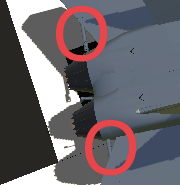
The engine shutoff devices are circled in red.
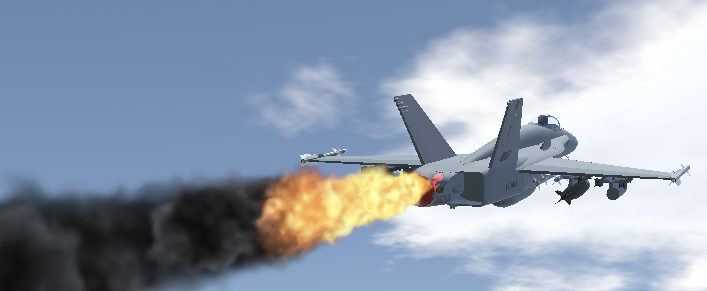
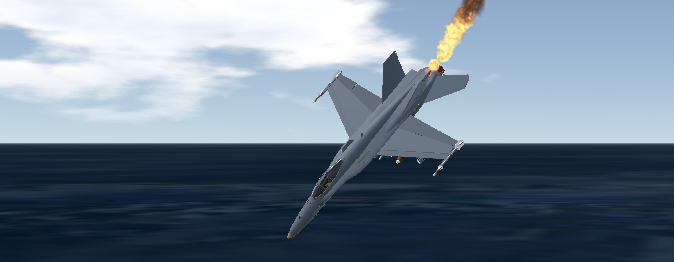
One in the air with your engines zeroed, let’s start by doing a basic maneuver, the cobra maneuver. Pull the stick up, and if your plane tilts up without moving up, you are doing a cobra! If it reverts to a death spiral, you did something wrong. Try to jerk the plane around like a madman in a last-ditch attempt to do some sort of PSM, and then try to not crash. Good luck with that.
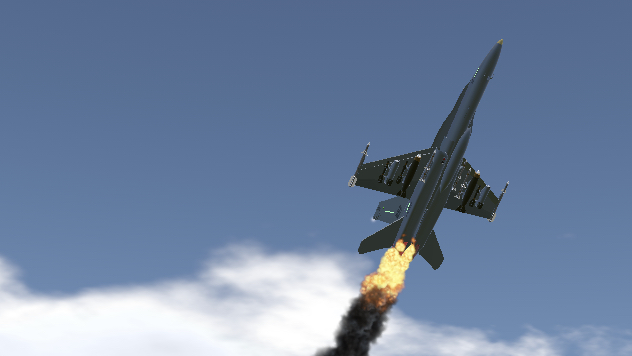
A basic cobra maneuver. Note the ever-important smoke trail for showing off.

Time to call your insurance company.
Time for the next step, the most important one! You need to put the words ‘PSM Capable’ somewhere on the plane so everyone knows what it can do. This is especially important because the fighter jet in your rival next-door neighbor’s garage is only capable of carrier landings and air-to-air refueling. Time to show him who’s plane is better!
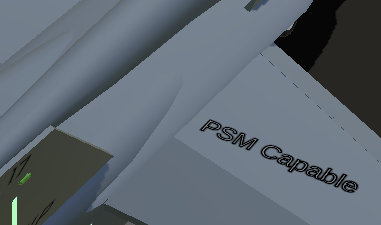
The next thing you need to add is thrust vectoring, which is where your engines (despite the fact that they’re off) move up and down for some reason. I have no idea what it is conceivably supposed to achieve, but all the other PSM planes have it, so why not try?
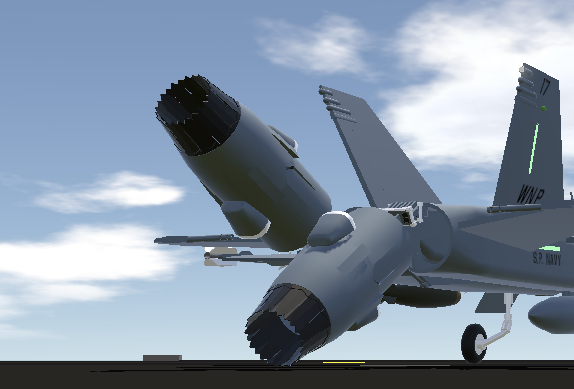
You will need to adjust the engine shutoff device to compensate for the change in engine position (as well as the landing gear), but there is a handy diagram on how to do that.
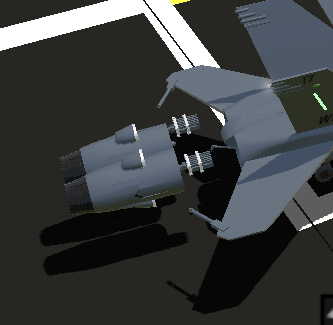
Now your somewhat deadly and impractical, but awesome all the same PSM plane is complete! Make your next door neighbor jealous, terrify your insurance company, and destroy your aircraft’s warranty!
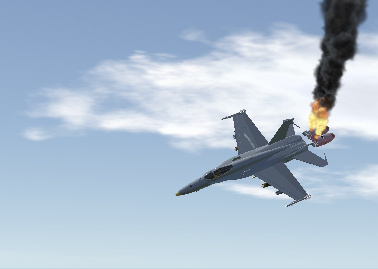
A simple flat spin.
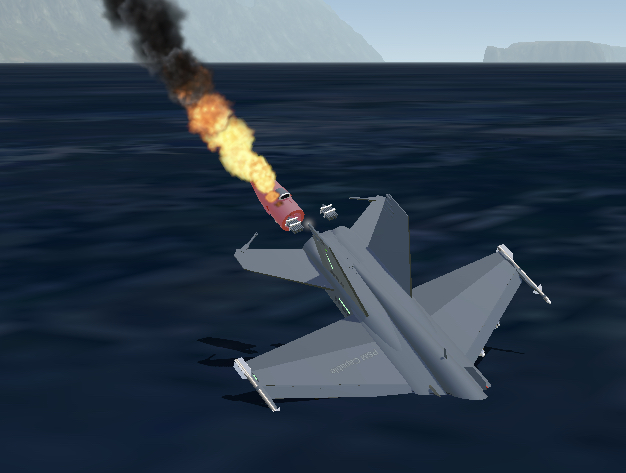
All of the insurance company employees have gone into hiding. You’re paying for this.

10/10 would recommend
@NotNiki working on it
@Noname918181 I've already done this
And I'm keeping the Throttle at 30%
@derlurje
Oh god!! I've been doing PSM wrong for all these year.
I left my engines intact and write those complex FT code for the tvc hoping that they will help controlling the plane when control surfaces are ineffective just to find out today that terminating engine works the same way.
Also putting "PSM Capable" on my plane make it fly like a dream, too.
@ZeroWithSlashedO, or you can use funky trees like
Roll + Pitch.This is good, but not good enough.
In order to make an aircraft Supermaneuverable at least in SP is get an all moving elevator that can deflect to maybe 30°, and put the CoM slightly infront of the CoL. Get slow, and you should be able to do it. Although this has one problem. Stability. It's going to be super unstable, so I recommend making a simple, yet effective G-limiter. It's actually pretty simple. If you want it to have a maximum deflection angle of 30°, get 2 rotators, put the first rotator on 15°, same goes for the second, but put it on an activation group. Put them together, and boom, done.
Thrust vector has a goal of making the aircraft generally more stable and agile. Common user of the thrust vectoringtechnology is Russia with it's Su-27 successors and it's Su-57. It's also used by the F-22 Raptor and Harrier jets.
There are 3 types of thrust vectoring. VTOL, 2D, and 3D.
VTOL TVCs are Thrust Vectoring that are used by VTOL aircrafts, like the Harrier, and the F-35. This kind of thrust vectoring allows an aircraft to do what's knows as VIFF.
2D TVC are thrust vectoring that can move vertically. Usually the inputs for these thrust vectoring are Roll and Pitch. Such aircraft featuring 2D TVC is Su-37, F-15S/MTD, and the F-22 (note that the F-22 only has pitch for it's TVC input).
3D TVC is a thrust vectoring that can move both vertically and horizontally. Meaning that it can move in all directions (roll, yaw, and pitch). Such aircraft featuring 3D TVC are Su-35S, Su-57, and Su-30SM.
To learn more about TVC, click here
@Bellcat Just don’t insure your plane.
Good instructions, but you can stall even without terminating the engines. The pugachev’s cobra maneuver does not require thrust vectoring, it requires an amount of inertia, so a heavy prop plane can do that. Maybe helpful for you though.
.
Joke ruining spoiler
epic
A very credible guide in my opinion
Imma sneak into an airport and modify all their airliners to do this as a prank
OMG PSM PSM OMG OMG PSM SO COOL OMG PSM PSM PSM SO COOL OMG PSM OMG OMG GUYS LOOK PSM PSM OMG
PainStallManeuver